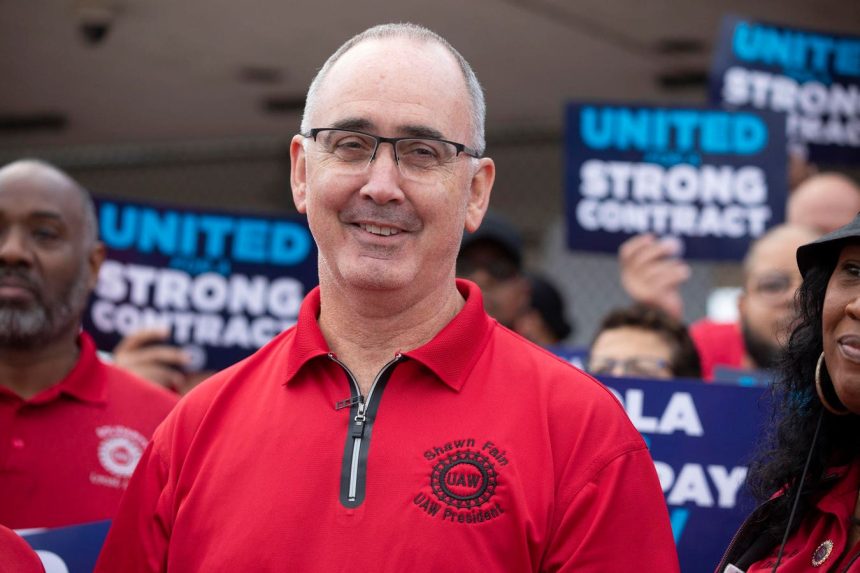The departure of Stellantis CEO Carlos Tavares marked a significant victory for the United Auto Workers (UAW) union, particularly for its president, Shawn Fain. Fain publicly celebrated Tavares’ exit, attributing it to the union’s persistent pressure and criticism of the CEO’s leadership. He framed Tavares’ resignation as a direct consequence of the UAW’s vocal concerns about the company’s direction under Tavares, highlighting the union’s earlier calls for his dismissal. Fain emphasized the crucial role played by UAW members in applying this pressure, arguing their collective action forced Stellantis to “correct course.” This victory, however, is but one battle in a larger war, as Fain acknowledges the ongoing challenges faced by the union and its members.
The friction between Stellantis and the UAW stemmed from several key issues, most prominently the delayed reopening of the Belvidere, Illinois assembly plant and the potential relocation of Dodge Durango production from Michigan to Canada. These disputes followed the 2023 strikes against Stellantis, General Motors, and Ford, highlighting the persistent tension between the automaker and its workforce. The Belvidere plant closure and the potential shift of Durango production represent significant concerns for the UAW, impacting job security and undermining the union’s negotiating power. Stellantis, however, denied breaching the terms of the 2023 strike settlement, setting the stage for continued conflict with the UAW.
Fain’s victory lap was tempered by the recognition of the significant challenges that lie ahead. While Tavares’ departure was a positive development, Fain stressed that the fight was far from over. He pointed to the “mess” left behind by Tavares, including layoffs and an oversupply of vehicles at dealerships, as evidence of the ongoing struggles faced by the company and its workers. Fain urged continued vigilance and collective action, emphasizing the need for the union to rely on its own strength rather than expecting external saviors. This pragmatic outlook acknowledges the complex nature of the automotive industry and the need for sustained pressure to achieve the UAW’s goals.
The resignation of Tavares unfolds against the backdrop of a rapidly evolving automotive landscape, marked by the transition to electric vehicles and the ongoing consolidation within the industry. Stellantis, born from a series of mergers and acquisitions, embodies this dynamic. From its roots as Chrysler Corporation, the company has passed through various owners, including Daimler AG, Cerberus Capital Management, and Fiat, ultimately becoming part of the larger Stellantis group. This complex history, coupled with the challenges of electrification and global competition, creates a precarious environment for workers and their union.
The acquisition of American Motors in the mid-1980s brought the iconic Jeep brand into the Chrysler fold, and it remains a cornerstone of Stellantis’ portfolio. However, even the strength of the Jeep brand doesn’t insulate the company from the disruptive forces affecting the automotive industry. The shift towards electric vehicles poses a significant challenge for legacy automakers like Stellantis, requiring substantial investments in new technologies and potentially impacting traditional manufacturing jobs. The UAW recognizes these challenges and is working to protect its members’ interests amidst this turbulent transformation.
Fain’s message to the UAW membership underscores the importance of self-reliance and continued collective action. He acknowledges the symbolic victory represented by Tavares’ departure but cautions against complacency. The underlying issues that led to the conflict with Stellantis remain, and the union must continue to advocate for its members’ interests. The challenges of a rapidly changing industry, including the transition to electric vehicles and the ongoing consolidation of automakers, require a strong and united union to ensure the future of its members. Fain’s call for continued vigilance serves as a reminder that the fight for worker rights and job security is an ongoing process.



